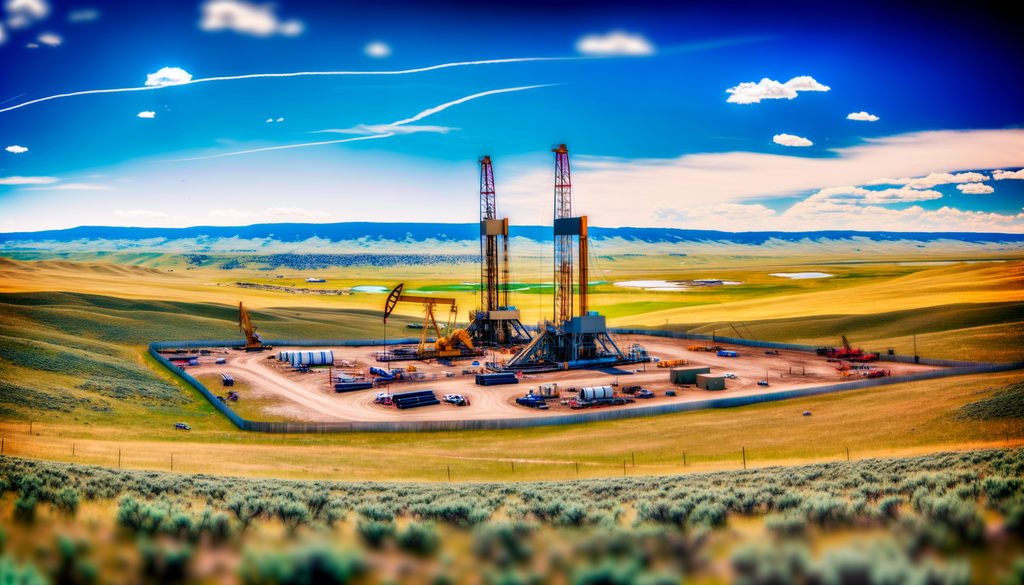Trump Administration Pushes for 5,000-Well Wyoming Oil Development Amid Legal Challenges
The Trump administration’s aggressive push to expand oil and gas drilling in Wyoming has garnered significant attention across the energy sector. By proposing permits for up to 5,000 new wells, the federal government aimed to accelerate domestic energy production and bolster economic growth in resource-rich states. At Teknologam Sdn Bhd, we understand the complexities such initiatives pose for industry players, particularly when regulatory frameworks shift rapidly. Balancing federal ambitions with environmental scrutiny remains a key challenge as Wyoming’s energy landscape evolves.
Key Takeaways
- The Trump administration sought 5,000 new oil and gas drilling permits in Wyoming to enhance national energy independence.
- Industry players must navigate stringent court rulings halting large-scale drilling plans.
- Judge-blocked permits highlight growing legal resistance to rapid expansion on public lands.
- Leadership changes within the Bureau of Land Management create uncertainty around future regulations.
- Waiving environmental rules for oil drilling and mining may accelerate production but increase operational risks.
The Push for 5,000-Well Wyoming Oil and Gas Development
In recent years, the Trump administration prioritized unlocking federal lands for energy development. Wyoming, rich in oil and gas reserves, became a focal point for expanding drilling operations. The plan aimed to authorize up to 5,000 new wells, significantly scaling up production in a short period. This approach reflected a broader policy stance of reducing regulatory barriers to oil and gas extraction.
However, this rapid expansion raised concerns among environmental groups and local communities. The expedited permitting process included waiving certain environmental protections, a move that drew sharp criticism. From an industry perspective, while increasing access to reserves is beneficial, such policy shifts necessitate careful risk assessments and operational readiness.
- Streamlined permitting to hasten oil production
- Regulatory waivers impacting environmental assessments
- Increased public and legal scrutiny on drilling projects
Court Rulings Halt 5,000-Well Oil and Gas Drilling in Wyoming
Legal challenges soon emerged targeting the administration’s plan to approve thousands of wells. A federal judge issued rulings that effectively blocked new drilling permits for Wyoming oil projects, citing insufficient environmental reviews and concerns about cumulative environmental impacts. This decision pauses developments, prompting federal agencies and operators to reassess project timelines and compliance strategies.
For companies like Teknologam Sdn Bhd, which support sustainable and compliant drilling technologies, these rulings underscore the fragility of the legal landscape and the importance of adaptability. The industry must remain prepared for fluctuating regulatory conditions, balancing growth ambitions with evolving court mandates.
"Navigating regulatory shifts requires robust compliance frameworks and forward-thinking technological solutions to maintain operational continuity."
Political Appointments Affecting Bureau of Land Management Direction
The Trump administration’s appointment of leadership figures, including its choice to lead the Bureau of Land Management (BLM), signaled a deregulatory agenda. However, skepticism around certain appointments has led to delays and questioning of policy directions. The BLM plays a crucial role in managing federal lands and issuing drilling permits, making its leadership pivotal in shaping energy development.
Uncertainty within the BLM complicates strategic planning for oil and gas operators. Regulatory waivers for drilling and mining remain contentious, and fluctuating internal priorities could affect permit approvals and enforcement of environmental standards. For more about the BLM's role in energy management, you can refer to the U.S. Bureau of Land Management.
Key Insight: Stable and transparent leadership within land management agencies is essential to foster industry confidence and ensure consistent regulatory application.
- BLM leadership influences drilling permit policies
- Political factors impact regulatory enforcement rigor
- Operators must stay informed on administrative changes
Implications of Waiving Rules for Oil Drilling and Mining
The Trump administration’s approach involved waiving or relaxing several environmental and procedural rules to hasten oil drilling and mining projects. While this policy facilitates increased production, it also raises concerns about long-term ecological impacts and operational risks. Companies benefit from reduced regulatory delays but face potential backlash from environmental groups and community stakeholders.
Sustainability considerations are increasingly integral to industry reputation and social license to operate. Teknologam Sdn Bhd advocates for responsible innovation that aligns production efficiency with environmental stewardship, regardless of shifting federal policies. For an in-depth look into environmental impacts and regulations, check out the Environmental Protection Agency.
- Accelerated project approvals with reduced environmental assessments
- Elevated risks of environmental degradation and legal pushback
- Industry emphasis on integrating sustainable practices despite regulatory shifts
Looking Forward: Balancing Expansion with Compliance
The dynamic interplay between federal ambitions to boost Wyoming’s oil and gas output and judicial interventions highlights the ongoing tension between development and environmental protection. For specialized manufacturers and industry leaders, adapting to these shifts means investing in compliant, efficient technologies and proactive stakeholder engagement.
Teknologam Sdn Bhd remains committed to supporting clients through these transitions by delivering advanced solutions tailored for complex regulatory environments. As the fate of the 5,000-well drilling initiative unfolds, the industry must prepare for an evolving landscape where legal, political, and environmental factors converge.
“Sustainable growth in oil and gas depends on balancing aggressive development goals with rigorous compliance and environmental respect.”
